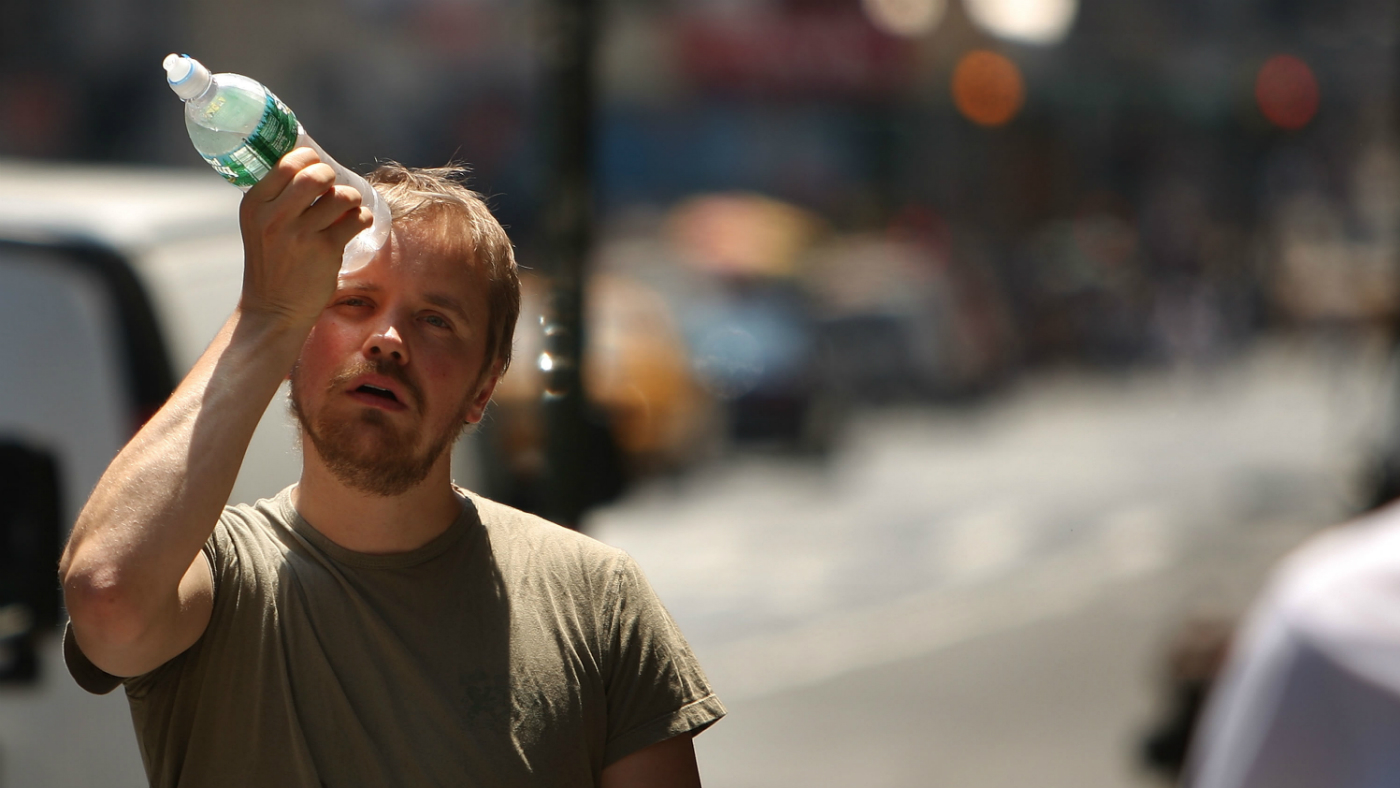Is the heatwave slowing down your brain?
Research finds that cognitive functions decline as temperatures rise

A free daily email with the biggest news stories of the day – and the best features from TheWeek.com
You are now subscribed
Your newsletter sign-up was successful
Hot weather really does fry our brains, a new study has confirmed.
Researchers at Harvard University found that people who were exposed to hotter temperatures “did significantly less well” in cognitive and memory retention tests than people in air-conditioned environments.
The research, published in the journal Plos Medicine, focused on 44 students at a Boston university. Half of the subjects had been assigned to dorm accommodation with air conditioning, while the other half lived in halls without it.
The Week
Escape your echo chamber. Get the facts behind the news, plus analysis from multiple perspectives.

Sign up for The Week's Free Newsletters
From our morning news briefing to a weekly Good News Newsletter, get the best of The Week delivered directly to your inbox.
From our morning news briefing to a weekly Good News Newsletter, get the best of The Week delivered directly to your inbox.
“They were followed before, during and after a five-day heatwave, when the indoor temperatures exceeded 26C without air conditioning,” The Times reports.
“The students performed two cognition tests, measuring processing speed and working memory - and when the temperature rose, the scores of those in the hotter accommodation dropped by about 13% compared with their air-conditioned peers,” the newspaper continues.
Memo Cedeno, from Harvard Chan School of Public Health, said the research shows that “even strong and healthy people” suffer impaired intelligence in the heat. “We see news pieces on heatwaves and mortality in older people, but the rest of us feel immune,” he noted.
The reality, that all types of people are affected mentally, “could be because of loss of bodily fluids”, Cedeno added, or because the brain is working harder maintaining critical functions such as thermoregulation.
A free daily email with the biggest news stories of the day – and the best features from TheWeek.com
The researchers have “recommended the roll-out of sustainable air conditioning systems wherever possible”, reports The Independent.
However, Professor Max Headley, a physiologist at the University of Bristol, suggests that the study has made “a mountain out of a molehill”. Scientists were already aware of the mental impact of tiredness and thirst, which are the likely factors at play in the Harvard research, he argues.
“To my mind, the observations can be readily explained by simple physiological factors that are entirely predictable. I can’t see that it’s anything to get excited about,” Headley said.
-
 The ‘ravenous’ demand for Cornish minerals
The ‘ravenous’ demand for Cornish mineralsUnder the Radar Growing need for critical minerals to power tech has intensified ‘appetite’ for lithium, which could be a ‘huge boon’ for local economy
-
 Why are election experts taking Trump’s midterm threats seriously?
Why are election experts taking Trump’s midterm threats seriously?IN THE SPOTLIGHT As the president muses about polling place deployments and a centralized electoral system aimed at one-party control, lawmakers are taking this administration at its word
-
 ‘Restaurateurs have become millionaires’
‘Restaurateurs have become millionaires’Instant Opinion Opinion, comment and editorials of the day
-
 Hundreds of children hit with heat exhaustion at World Scout Jamboree in South Korea
Hundreds of children hit with heat exhaustion at World Scout Jamboree in South KoreaSpeed Read One British parent said children ‘think they are going to die’
-
 Home Office worker accused of spiking mistress’s drink with abortion drug
Home Office worker accused of spiking mistress’s drink with abortion drugSpeed Read Darren Burke had failed to convince his girlfriend to terminate pregnancy
-
 In hock to Moscow: exploring Germany’s woeful energy policy
In hock to Moscow: exploring Germany’s woeful energy policySpeed Read Don’t expect Berlin to wean itself off Russian gas any time soon
-
 Were Covid restrictions dropped too soon?
Were Covid restrictions dropped too soon?Speed Read ‘Living with Covid’ is already proving problematic – just look at the travel chaos this week
-
 Inclusive Britain: a new strategy for tackling racism in the UK
Inclusive Britain: a new strategy for tackling racism in the UKSpeed Read Government has revealed action plan setting out 74 steps that ministers will take
-
 Does life really flash before our eyes when we die?
Does life really flash before our eyes when we die?feature Researchers have found that some brain waves change pattern even after blood stops flowing to the brain
-
 Sandy Hook families vs. Remington: a small victory over the gunmakers
Sandy Hook families vs. Remington: a small victory over the gunmakersSpeed Read Last week the families settled a lawsuit for $73m against the manufacturer
-
 Farmers vs. walkers: the battle over ‘Britain’s green and pleasant land’
Farmers vs. walkers: the battle over ‘Britain’s green and pleasant land’Speed Read Updated Countryside Code tells farmers: ‘be nice, say hello, share the space’